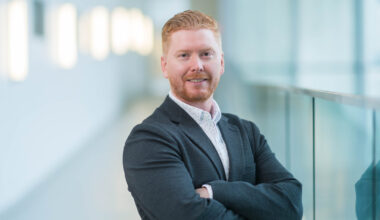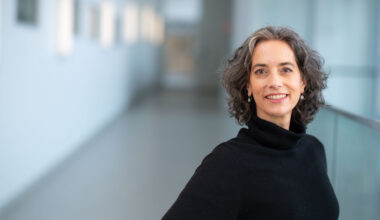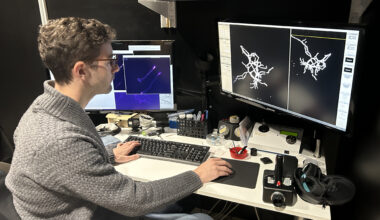Pictured, left to right (back row): Dr. Stefan Wendt, Dr. LP Bernier, Dr. Brian MacVicar, Alireza Kamyabi, Dr. Nick Weilinger; (front row) Heather Gerrie, Dr. Liisa Galea, Daphne Ling, Dr. Tim O’Connor, Tanvi Puri, and Dr. Chris Groten. Image source: Daphne Ling, October 29, 2019.
Following the third annual Great Supervisor’s Week on Twitter in May, UBC’s great supervisors were celebrated in person yesterday at a special event for grad students and their mentors at Thea’s Lounge. The event, hosted by the Faculty of Graduate and Postdoctoral Studies, celebrates faculty who are making a difference in the lives of graduate students and postdoctoral fellows.
The members of the Djavad Mowafaghian Centre for Brain Health who were celebrated during Great Supervisor’s Week include Dr. Brian MacVicar, Dr. Adele Diamond, Dr. Catharine Winstanley, Dr. Tim O’Connor, Dr. Rebecca Todd, Dr. Luke Clark, Dr. Liisa Galea, Dr. Shannon Kolind, Dr. Tim Murphy, Dr. Andrei Krassioukov, and Dr. Jehannine Austin.
“A great supervisor is someone who hears and understands a student’s individual needs, both in terms of their scholarly development and their overall wellbeing,” said Dr. Liisa Galea, Director of the Graduate Program in Neuroscience. “Great supervisors set a healthy example for their lab, and they nurture future generations of great supervisors.”
A great supervisor can mean the difference between surviving grad school and thriving in it.
“Dr. MacVicar’s motivation and patience as a mentor, and unending passion as a scientist were instrumental to both the successful completion of my PhD thesis, and to my ambition to pursue an academic career in neuroscience,” said Dr. Eli York, who recently began her postdoctoral fellowship at Harvard Medical School.
Dr. Nick Weilinger (pictured with MacVicar lab, left) echoes Dr. York’s sentiments, offering that “Brian MacVicar possesses a genuine passion for science and mentorship. He is a prime example of a great supervisor—one who both challenges and motivates his trainees. He is a true inspiration to the next generation of scientists.”
For Adam Dvorak, who is completing his PhD under the supervision of Dr. Shannon Kolind, having a great supervisor means working with someone who is an ally and an advocate.
“My supervisor shields me from the massive array of distractions, politics, unnecessary obligations, and issues that can easily prevent graduate students from making research progress,” said Dvorak. “This vastly improves my day-to-day life, allowing me to focus more time on the ‘important but never urgent’ work that too often gets pushed aside but is essential for an impactful PhD.”
While one great supervisor is essential for individual success, academia is a community and the success of an individual is often a cumulative effort.
“Personally, I think a great supervisor is also someone whom you consider to be a mentor,” said Daphne Ling. Ling’s PhD research is supervised by Dr. Adele Diamond, and while that relationship has been positive, she has also found a support network across the neuroscience community at UBC.
“Nobody gets through grad school under the direction of their supervisor alone,” said Ling.
“The thing that will break you is not the dissertation itself; it is the 6,000,000 hoops you will have to jump through every single day of the process,” said Ling. “Knowing there are people who will jump them with you and use their privilege to fight for you when needed—even while making it challenging and holding you to very high standards—will make all the difference. I think we need to talk about this support network more.”
Dr. Galea agrees that the mentor-student relationship is essential, but that a strong network is also key.
“There are many pathways to success, and my advice is to seek out guidance from not just your mentor, but your community as well,” said Dr. Galea.
Read what graduate students and postdoctoral fellows have said about UBC’s Great Supervisors.


